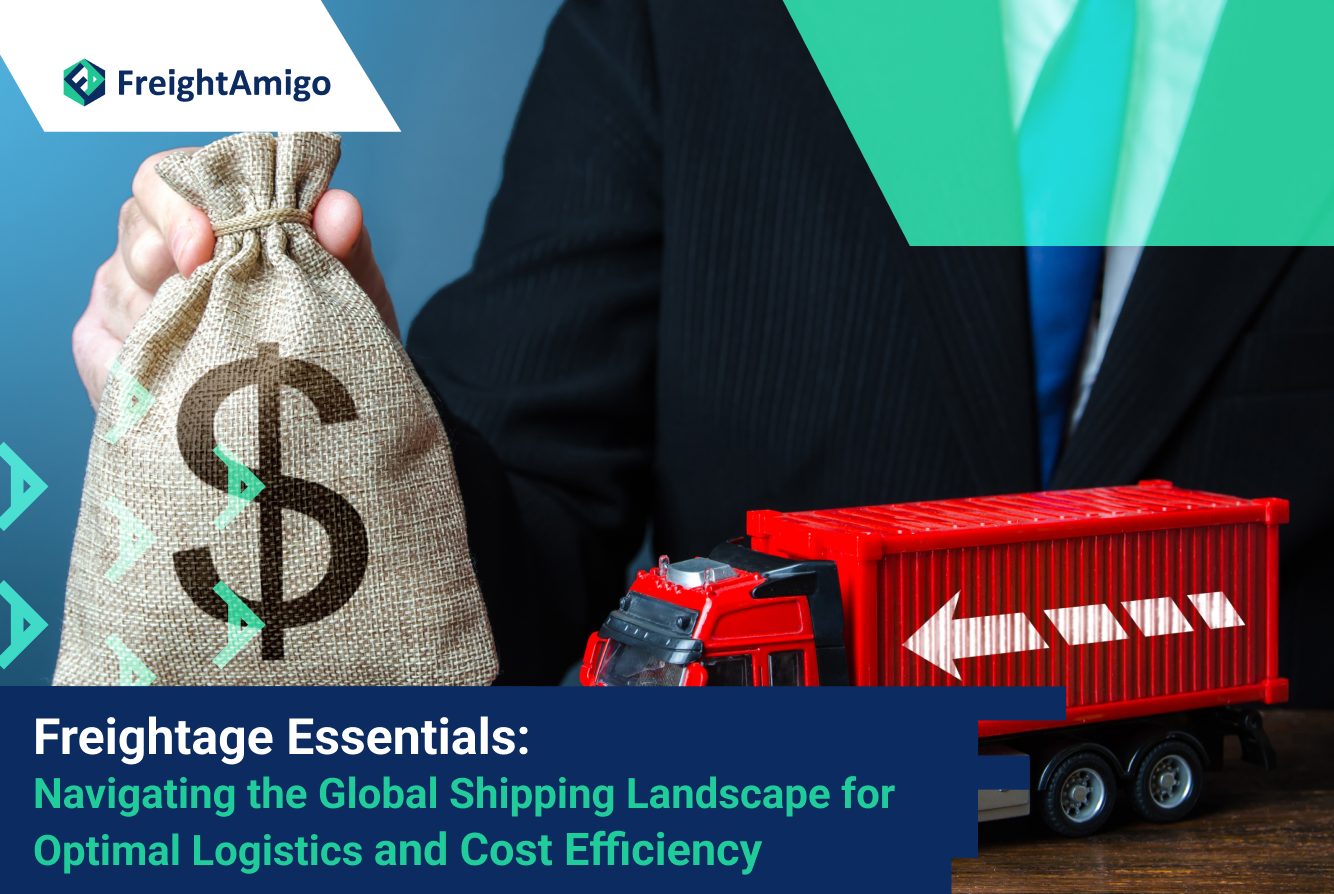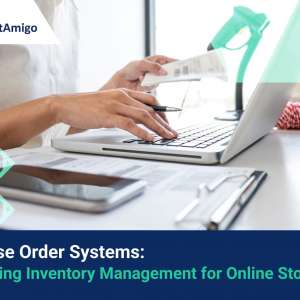Freightage play a pivotal role in the global economy, enabling businesses to transport goods efficiently across different locations. Whether you are shipping products by land, sea, or air, understanding the intricacies of Freightage is crucial for businesses to optimize their supply chain logistics and minimize expenses. In this comprehensive guide, we will delve into the various aspects of Freightage, including expense considerations, freight density, and types of charges. By the end, you will have a solid understanding of Freightage and be well-equipped to navigate the complex world of shipping.
Author Name:Tiffany Lee – Marketing Analyst at FreightAmigo
Want to compare the best Express, Air Freight, Sea Freight, Rail Freight & Trucking rates so as to have better control on cost?
Expense Considerations in Freightage
When calculating the cost of shipping from the seller’s location to the buyer’s outlet, several expense considerations come into play. These factors include:
-
Transportation to the Departure Location
The first expense consideration is the transportation of goods from the seller’s location to the departure location. This may involve various modes of transportation, such as trucks, trains, or warehouses, depending on the nature of the goods and the shipping route.
-
Loading onto the Vessel
Once the goods reach the departure location, they need to be loaded onto the appropriate vessel, whether it is a ship, airplane, or another transportation medium. This step requires careful handling to ensure the safety and integrity of the goods during transit.
-
Marine Freight Transport
Marine freight transport refers to the transportation of goods via ships or vessels across seas or oceans. This aspect of Freightage includes the expenses associated with fuel, crew, maintenance, and any other operational costs incurred during the voyage.
-
Unloading
Upon reaching the destination location, the goods must be unloaded from the vessel and transferred to the appropriate storage facility or transportation mode for further distribution. Unloading expenses may include labor costs, equipment fees, and handling charges.
-
Insurance
To mitigate the risks associated with shipping, businesses often opt for insurance coverage to protect their goods against loss, damage, or theft during transit. Insurance costs vary depending on the nature of the goods, their value, and the shipping route.
-
Transportation to the Destination Location
Finally, the goods need to be transported from the destination port or airport to the destination location, such as a warehouse, retail outlet, or customer’s doorstep. This last leg of transportation involves additional expenses, including fuel, labor, and vehicle maintenance costs.
Considering these expense considerations is crucial for businesses to accurately estimate and budget for their Freightage. By understanding the various components, businesses can identify areas for cost optimization and make informed decisions regarding their shipping strategies.
The Impact of Freight Density on Costs
With the increasing demand for freight shipping, many companies have shifted their pricing models to consider freight density rather than weight. Charging by weight can limit the quantity of goods shipped and result in higher costs both in terms of money and space utilization. Freight density, on the other hand, allows companies to optimize their shipping capacities and decrease transportation costs per pound.
Freight density refers to the amount of space occupied by a shipment. It is calculated by dividing the total weight of the shipment by its volume. The greater the freight density, the less space it occupies on the carrying vessel, resulting in lower transportation costs.
By considering freight density, businesses can maximize their shipping efficiency and reduce expenses. It is important for companies to work closely with their logistics providers to understand how freight density impacts their shipping costs and explore strategies to optimize density for better cost-effectiveness.
Types of Freight Charges
Freight charges can be categorized into different types, depending on who pays for the transportation of goods and when the ownership transfers between the parties involved. Let us explore some of the common types of freight charges:
-
Freight Pre-Paid
In the case of freight pre-paid charges, the consignor (seller) pays for the Freightage upfront. The consignor retains ownership of the goods until the consignee (buyer) receives them and pays the invoice. This arrangement allows the consignee to receive the goods without worrying about the shipping costs.
-
Freight Collect
In contrast to freight pre-paid charges, freight collect requires the consignee to pay for the transportation costs. The ownership of the goods transfers to the consignee once the carrier receives them. Freight collect charges are often used when the consignee has more control over the shipping process or wants to negotiate better rates with the carrier.
-
Consignee Collects
Under the consignee collects arrangement, the consignee is responsible for paying the freight charges and handling any customs or tax-related formalities. This type of charge is common in international shipping, where the consignee takes full ownership and control of the goods upon receipt.
-
Prepay and Add
In some cases, the consignor may choose to prepay the freight charges to secure better rates. The consignor then includes these costs in the final invoice sent to the consignee. This arrangement simplifies the billing process and allows the consignor to negotiate favorable shipping terms.
-
Third Party
In certain situations, a third party, usually a logistics company, handles the payment of freight charges on behalf of the consignor or consignee. This arrangement provides added convenience and simplifies the financial transactions between the parties involved.
-
Cash on Delivery (COD)
Cash on Delivery, commonly known as COD, involves the consignee paying the carrier at the time of delivery. The carrier then remits the payment to the consignor. COD is often used when the consignee prefers to inspect the goods before making the payment.
-
Freight-on-Board (FOB) Origin
FOB Origin refers to a shipping term indicating that the consignee assumes responsibility for the Freightage and takes ownership of the goods at the consignor’s dock. The consignee is responsible for arranging the transportation from the origin location to the final destination.
-
FOB Origin, Freight Prepaid
Similar to FOB Origin, Freight Prepaid means that the consignee assumes ownership and responsibility for the goods at the consignor’s dock. However, in this case, the consignor pays the freight charges upfront, including the transportation costs from the origin location.
-
FOB Origin, Freight Prepaid and Charged Back
In this scenario, the consignor pays the freight charges initially, but later bills the consignee for these costs. The consignee takes ownership of the goods at the consignor’s dock and is responsible for arranging transportation to the final destination.
-
FOB Destination
FOB Destination indicates that the consignor retains ownership and responsibility for the goods until they reach the consignee’s dock. The consignor covers the freight charges, including the transportation costs to the destination location.
-
FOB Destination, Freight Collect
In this arrangement, the consignor bears the Freightage until the goods reach the consignee’s dock. The consignee assumes ownership upon delivery and is responsible for paying the transportation charges.
-
FOB Destination, Freight Collect and Allowed
FOB Destination, Freight Collect and Allowed is similar to FOB Destination, Freight Collect, with the additional allowance for the consignee to deduct the freight charges from the consignor’s invoice. This arrangement provides flexibility for the consignee to handle the transportation costs in-house.
It’s important for businesses to understand the various types of freight charges to make informed decisions about their shipping arrangements. By choosing the most suitable charge type, businesses can optimize their logistics operations, manage costs effectively, and ensure a smooth shipping process.
FreightAmigo’s Instant Quote feature
A game-changer in the world of freight logistics. With this innovative tool, customers can obtain fast and accurate calculations of shipping costs with ease. By simply providing necessary shipment details such as origin and destination locations, dimensions, weight, and any special requirements, our advanced system swiftly processes the information and generates an instant quote, displaying the estimated freight cost right at your fingertips.
Gone are the days of time-consuming manual calculations or waiting for a response from freight providers. With FreightAmigo’s Instant Quote feature, you can access real-time shipping cost estimates, allowing you to make informed decisions and plan your logistics budget effectively. Whether you are shipping domestically or internationally, by land, sea, or air, our comprehensive algorithms consider various factors to ensure the accuracy of the quote.
This powerful feature not only saves you valuable time but also empowers you to optimize your supply chain and enhance cost-efficiency. By having immediate access to accurate freight cost estimates, you can compare rates, negotiate with carriers, and make strategic decisions to streamline your shipping operations.
FreightAmigo is committed to providing transparency, reliability, and customer satisfaction. Our Instant Quote feature is designed to simplify your shipping experience, allowing you to focus on what matters most – growing your business. Visit our website today and experience the convenience of freightage calculations with FreightAmigo’s Instant Quote feature.
There are different options for cargo transportation. If you want to choose the most convenient and suitable solution, it is best to have the full support of logistics experts! If you are planning to ship goods overseas, please go to the FreightAmigo page for inquiries.
===
If you have any inquiries on logistics/supply chain, feel free to contact FreightAmigo now:
Chat with us online OR
Phone : +852 28121686
WhatsApp: +852 27467829



